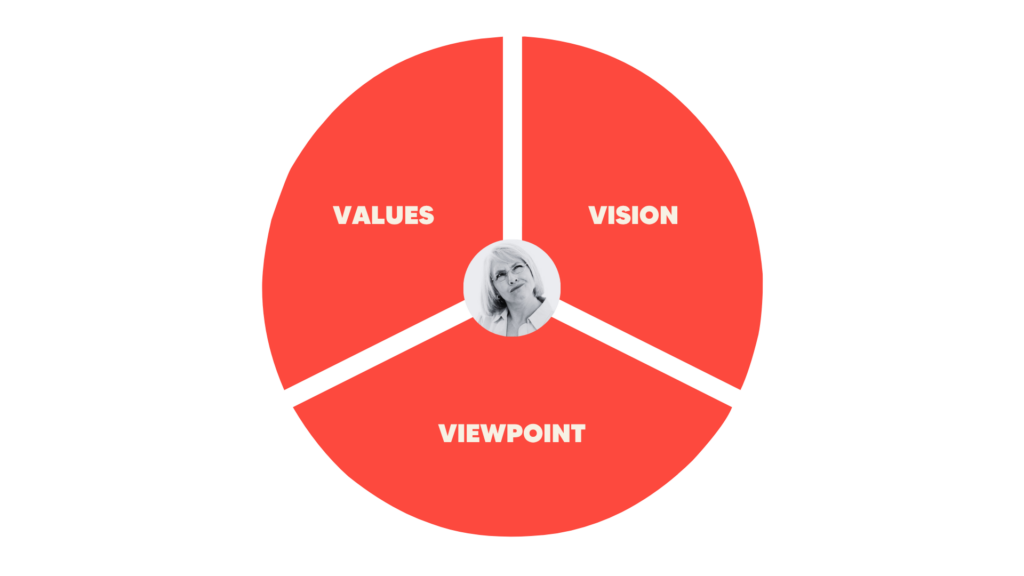
In a previous article, I introduced the concept of Personal Brand Sovereignty, the idea of owning your identity, your message, and your platform in a digital world that increasingly wants to own you.
The response has been positive, both from readers of this newsletter and subsequently, feedback received on social media. The idea is clearly resonating, albeit I’ve noticed that people’s interpretations of the concept differ somewhat. That’s totally understandable: there’s a lot to it, and it comes with much nuance.
Unpacking the various conversations I’ve had with a range of founders, solopreneurs and professionals, it’s interesting to see that people recognise the creeping loss of control – of their time, their voice, and their relevance – as they try to navigate today’s hyper-competitive online landscape.
They are very much across the challenges involved when it comes to operating in a digital-first commercial environment tilted in favour of algorithms, attention-hacks, and those who shout the loudest.
So here’s the next step in the journey …
Let’s move from the philosophy of last week’s introductory article, to practice. From the why of Personal Brand Sovereignty (as important as that is) to the how – or at least, the starting how.
Because while the more expansive Personal Brand Sovereignty framework I’ve developed digs into strategic pillars and execution pathways (I’ll share more of that in time), the real work starts earlier.

It begins with a shift in perspective, a deliberate reframe of how you see your personal brand, your presence in the marketplace, and the unique value you offer.
With this in mind, here are three foundational shifts that set the stage for building a truly sovereign personal brand:
1. Stop chasing attention. Start earning trust.
If visibility is your north star, the game’s already over.
That may sound counterintuitive coming from someone who has spent decades helping founders and leaders build external visibility and influence. But here’s the thing: visibility without credibility is noise. And noise, in today’s AI-fuelled online environment, is easy to manufacture.
What’s harder, and more valuable than ever, is trust.
Trust isn’t won through tricks, templates, or trend-chasing. It’s earned through consistency, clarity, and courage. It comes from showing up with a point of view, with something real to say, something of substance, and saying it in a way that resonates with people in your audience.
So ask yourself: Are you publishing content designed to capture attention, or that compounds trust?

2. Build on owned land, not borrowed reach.
This one’s simple, but essential.
If your visibility, connection, and audience access all live inside ‘rented’ platforms (e.g. LinkedIn, Instagram, Medium, YouTube, etc.), then you are only ever one algorithm change, policy update, or shadow ban away from losing it.
I’m not saying don’t use these platforms, of course we should. They’re powerful tools when used strategically, with genuine intent.
But sovereignty means optionality. It means ensuring you’re not beholden to any one platform, trend, or digital landlord.

At minimum, build a strong owned media base: your website/blog, your email list (newsletter), your podcast, your IP-driven content assets.
That way, if the social media ‘rug’ gets pulled out from under you, your presence, and your impact, remains intact.
So ask yourself: If the platforms went away tomorrow, what would remain? What foundation have you built that you truly own (and how well does it reflect who you are, what you stand for, and why it matters)?

3. Align your brand with who you are, not who the market says you should be.
One of the most insidious threats to sovereignty isn’t tech-driven, it’s psychological.
When we build our brand around market demands and shifting trends instead of personal truth, we start second-guessing ourselves.
Our message gets diluted.
Our direction blurs.
We imitate.
We play it safe, or worse, we start playing someone else’s game.
Ultimately, the personal brand we’re building stops feeling like ours.

Sovereignty flips the script!
It starts with your values, your vision and your unique viewpoint. Then strategy follows.
That doesn’t mean ignoring the market entirely.
But it does mean shaping your brand from the inside out, using your own principles and purpose as the compass.
Not just what sells, but what sticks.
Not just what pleases, but what aligns.
When you articulate, package and communicate your personal brand from that place, it not only feels better – it hits harder. Because people can sense the difference. When it’s real, people feel it.
So ask yourself: Is your brand an honest reflection of who you are, or a polished response to what you think the market wants?

This isn’t about rebellion. It’s about responsibility.
A sovereign brand isn’t a middle finger to the system – although a certain part of me enjoys doing that 😀. Nor is it about going off-grid or ghosting platforms.

It’s about taking responsibility for your reputation and personal brand presence.
It’s about choosing intentionality over inertia. Depth over dopamine. Ownership over dependency.
The kicker? No one’s handing you clarity*. No one’s handing you relevance. You have to claim both, or risk being misread, misunderstood, or overlooked.
* “Clarity” in this context isn’t just about knowing who you are, it’s about asserting it with intent i.e. taking ownership of your message, your positioning, your intention and your identity.

So what now?
Here’s a simple prompt to get you moving:
“If I could only communicate one idea, on one platform I own, to one audience that matters most – what would I say, and how would I say it?”
This exercise alone will tell you a lot about where your focus needs to go.
And if it feels like the start of a longer journey, that’s because it is, but it’s a step worth taking.
In future articles, I’ll walk through the core framework of Personal Brand Sovereignty, share examples, and provide tactical ways to start reclaiming your narrative and building a personal brand that’s independent, intentional, and built to last.
But for now, I’ll leave you with this:
You don’t need to be everywhere. You don’t need to follow the rules set by people who don’t get what you do. You don’t need to win the algorithm’s approval.
You just need to show up: on your terms, in your voice, with your values intact.
That’s sovereignty.
And that’s where the real power lies.



Leave a Reply